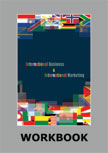Genetically Modified Crops in India: The Bt Brinjal Controversy |
ICMR HOME | Case Studies Collection
»
Business Environment Case Studies Please note: This case study was compiled from published sources, and is intended to be used as a basis for class discussion. It is not intended to illustrate either effective or ineffective handling of a management situation. Nor is it a primary information source. |
||||
Introduction Contd...India, as a party to the Convention on Biodiversity (CBD)7 and as a country which ratified the Cartagena Protocol (CP)8, is committed to the safe handling of living or genetically modified organisms (LMOs or GMOs).
The debate was further fuelled by the fact that there were wide differences in the performance results obtained by studies sponsored by the company, independent researchers, and NGOs.
7] Convention on Biodiversity (CBD) is an international treaty adopted in 1992. It aims to conserve biological diversity, promote its sustainable use, and ensure fair and equitable sharing of the benefits arising out of its genetic resources. |
Case Studies Links:-
Case Studies,
Short Case Studies,
Simplified Case Studies.
Other Case Studies:-
Multimedia Case Studies,
Cases in Other Languages.
Business Reports Link:-
Business Reports.
Books:-
Textbooks,
Work Books,
Case Study Volumes.



